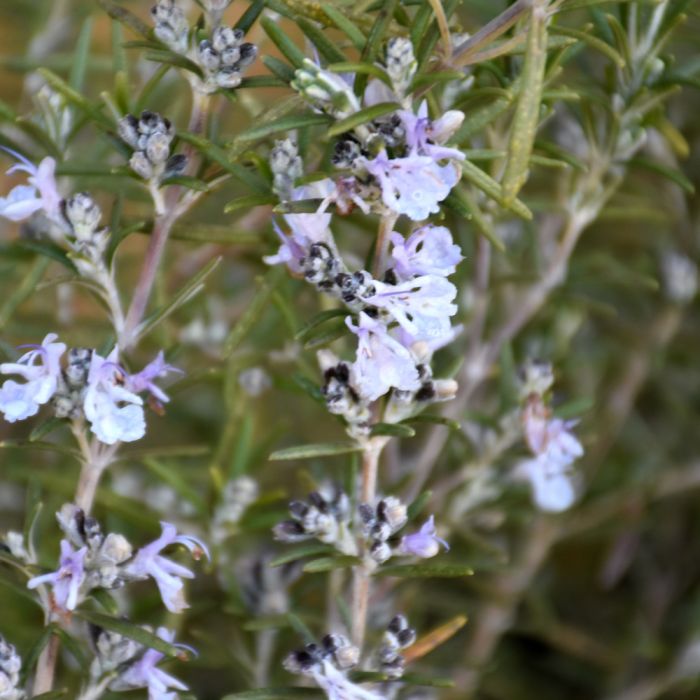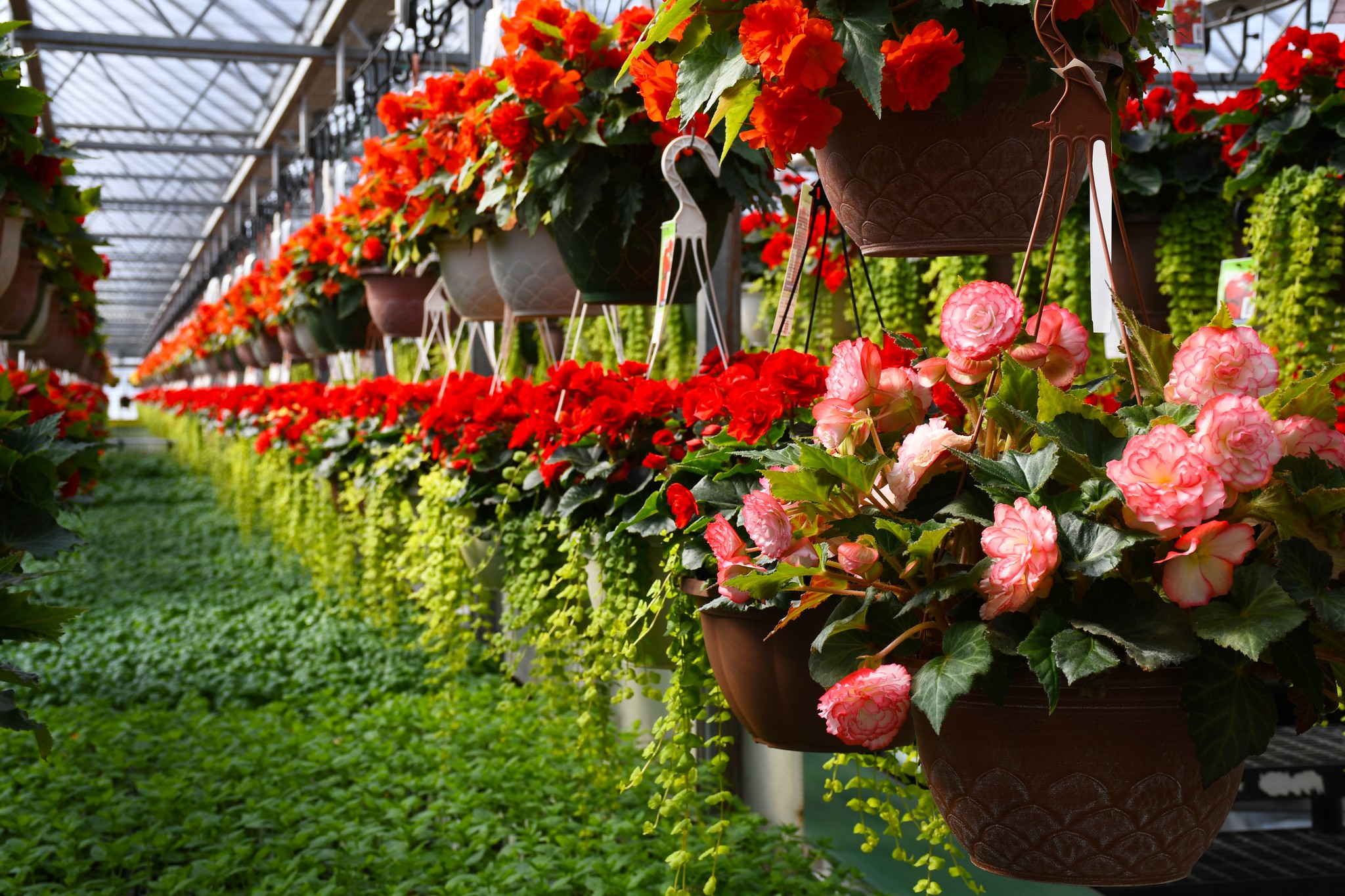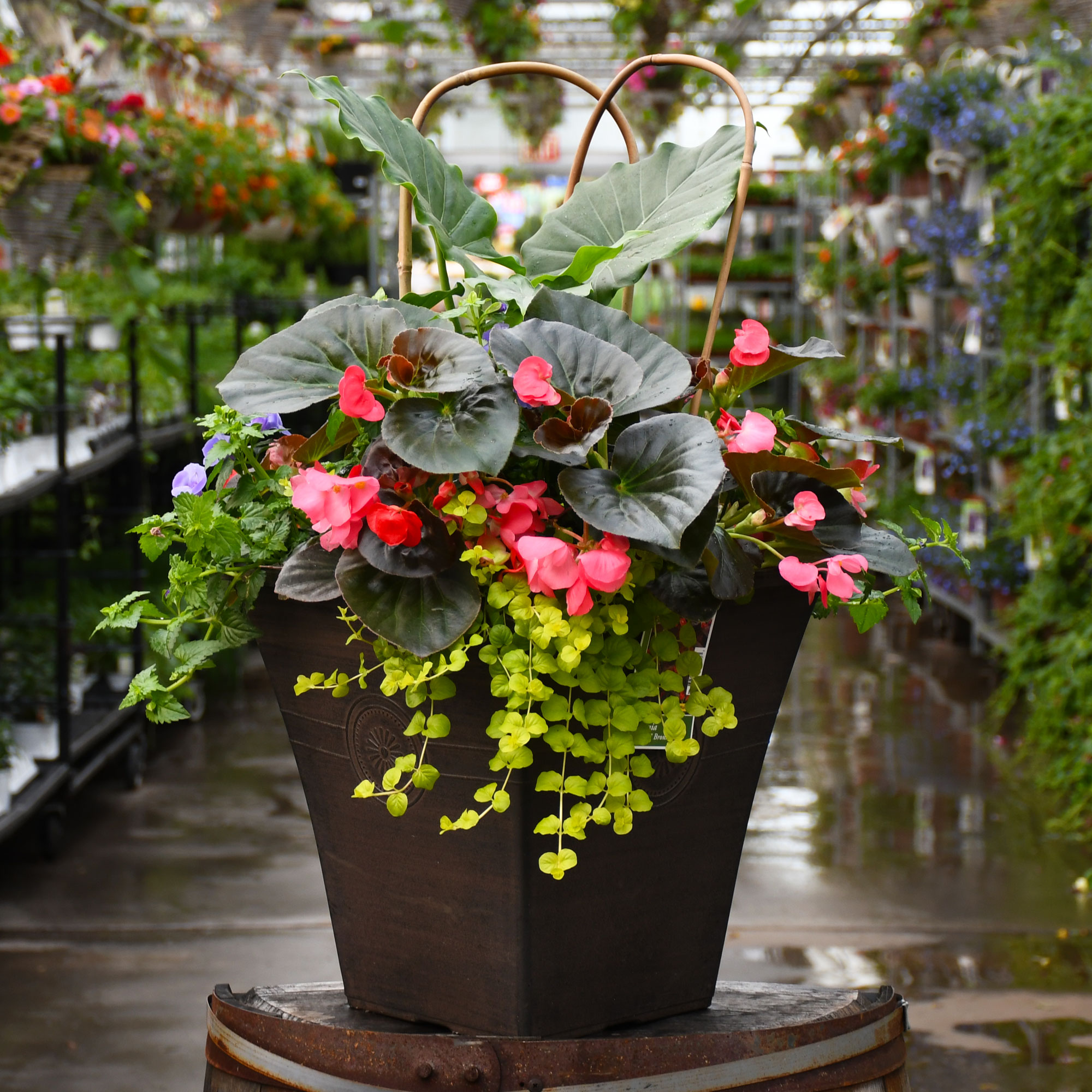Rosmarinus, Rosemary 'Tuscan Blue'

Out of stock
Temporarily Out of StockDescription
A very popular herb, this is actually a pretty shrub as well, with narrow grayish green needle-like foliage and pretty blue flowers in spring on an upright form; leaves are a mainstay for cooking and as garnish, wonderful to grow in a container
Direct from the Grower
When you see the Gerten Grown logo on our annuals, you know you're getting a fresh plant directly from our greenhouse. We've been perfecting our growing process for over four generations and pride ourselves on providing local quality and freshness to our customers. Better pricing on better quality plant material, that's Gerten Grown.
Details
Tuscan Blue Rosemary | Rosmarinus officinalis 'Tuscan Blue'
Hardiness Zone: (annual)
Edible Qualities
Tuscan Blue Rosemary is an annual herb that is commonly grown for its edible qualities, although it does have ornamental merits as well. The fragrant grayish green needle-like leaves are usually harvested from early to mid summer. The leaves have a sharp taste and a pungent fragrance.
The leaves are most often used in the following ways:
- Cooking
- Drying
- Seasoning
Planting & Growing
Tuscan Blue Rosemary will grow to be about 6 feet tall at maturity, with a spread of 4 feet. Although it's not a true annual, this plant can be expected to behave as an annual in our climate if left outdoors over the winter, usually needing replacement the following year. As such, gardeners should take into consideration that it will perform differently than it would in its native habitat.
This plant is quite ornamental as well as edible, and is as much at home in a landscape or flower garden as it is in a designated herb garden. It should only be grown in full sunlight. It prefers dry to average moisture levels with very well-drained soil, and will often die in standing water. It is not particular as to soil type or pH. It is highly tolerant of urban pollution and will even thrive in inner city environments. Consider applying a thick mulch around the root zone in winter to protect it in exposed locations or colder microclimates. This is a selected variety of a species not originally from North America.
Tuscan Blue Rosemary is a good choice for the edible garden, but it is also well-suited for use in outdoor pots and containers. With its upright habit of growth, it is best suited for use as a 'thriller' in the 'spiller-thriller-filler' container combination; plant it near the center of the pot, surrounded by smaller plants and those that spill over the edges. It is even sizeable enough that it can be grown alone in a suitable container. Note that when growing plants in outdoor containers and baskets, they may require more frequent waterings than they would in the yard or garden.
More Information
| Plant Life Cycle | Annual |
|---|


